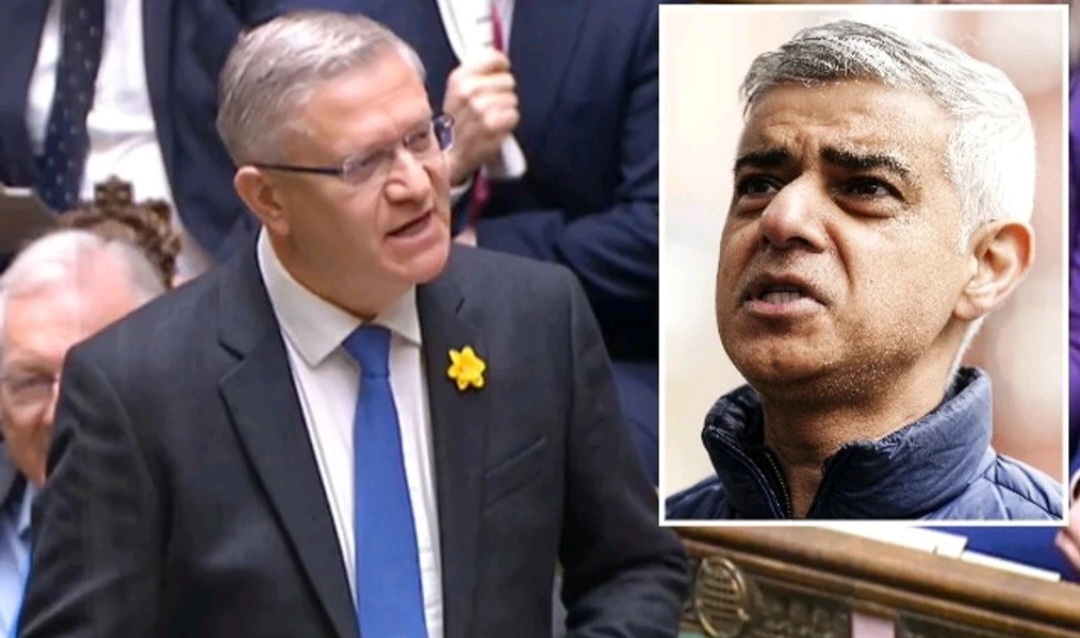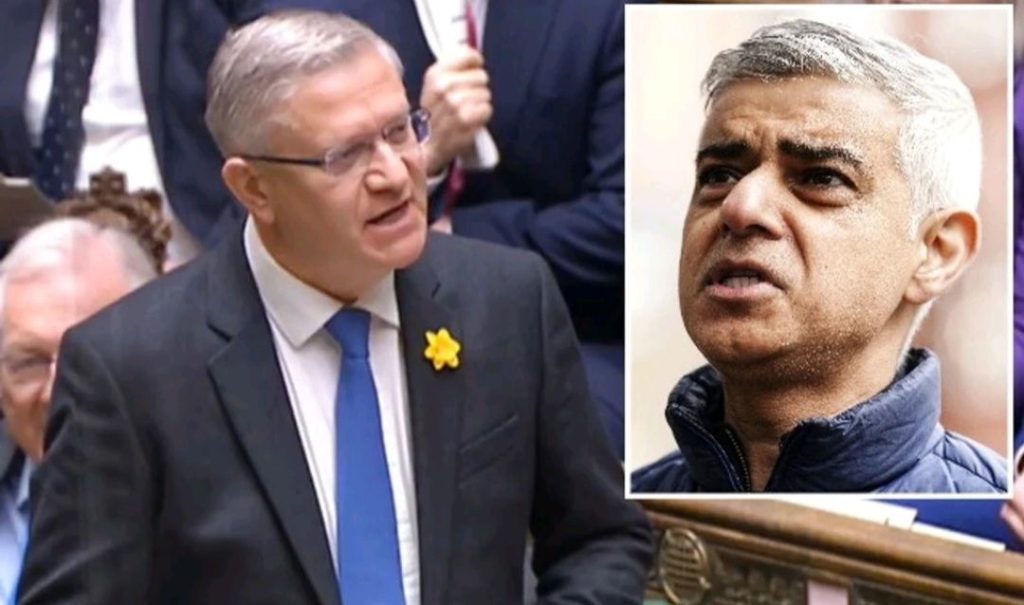
The Conservative Member of Parliament, Andrew Rosindell, launched a scathing attack on London Mayor Sadiq Khan during Prime Minister’s Questions, calling for his removal from office and the election of Susan Hall as his successor. Rosindell labeled Khan’s tenure as “catastrophic,” citing concerns raised by constituents in Romford as reported by BBC News.

Rosindell’s remarks underscore the growing dissatisfaction among some Londoners with Khan’s leadership, particularly regarding issues such as crime, taxation, and the management of City Hall. He urged the Prime Minister to consider granting traditional boroughs like Havering more autonomy from the mayoral administration.
In response, the Prime Minister acknowledged the challenges facing London under Khan’s leadership, including a decline in nightlife, rising crime rates, and increased taxation. While stating that there are no immediate plans to redraw administrative boundaries, he expressed sympathy for Rosindell’s sentiments, emphasizing the need for change in the capital.
The criticism leveled at Khan coincides with the launch of his reelection campaign, where he unveiled ambitious plans to address housing shortages by building 40,000 new council homes by the end of the decade. Khan emphasized his commitment to tackling key issues facing Londoners, such as housing affordability and community safety.
Reflecting on his accomplishments during his time in office, Khan highlighted initiatives such as providing free school meals for primary school children, freezing Transport for London fares, and increasing police presence on the streets. He also reiterated his dedication to upholding London’s values of diversity and inclusivity, positioning the city as a beacon of progress and unity.
However, Khan faces fierce competition from Susan Hall, the Conservative candidate, who has positioned herself as a challenger ready to lead London in a new direction. Hall has criticized Khan’s record on crime and taxation, promising to restore pride in London by implementing alternative policies if elected.
Support for Khan’s reelection bid comes from Labour leader Sir Keir Starmer, who commended the mayor’s resilience in the face of opposition from the Conservative government. Starmer argued that a Labour mayor working in tandem with a Labour government could accelerate progress and deliver meaningful change for Londoners.
The upcoming mayoral election on May 2 is poised to be a pivotal moment for the capital, with voters facing a choice between continuity under Khan’s leadership or a new direction advocated by his opponents. As campaigning intensifies, the debate over London’s future will continue to dominate political discourse, shaping the outcome of the election and influencing the city’s trajectory in the years to come.
Andrew Rosindell’s critique of Sadiq Khan’s mayoralty reflects broader discontent with the current administration’s performance. With the election approaching, the stakes are high as candidates present competing visions for London’s future. Whether Khan secures another term in office or faces defeat at the hands of his rivals remains to be seen, but one thing is certain: the outcome of the election will have profound implications for the capital and its residents.




